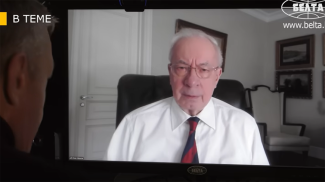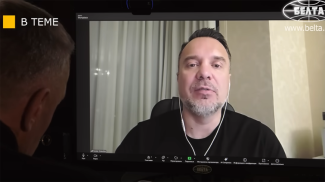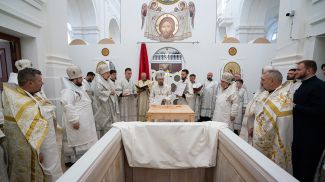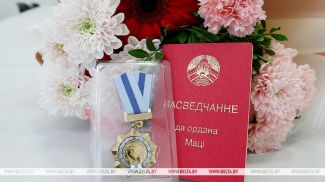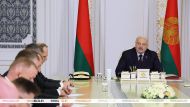MINSK, 21 November (BelTA) – The Belarusian Republican Foundation for Fundamental Research intends to implement about 100 new projects together with Russia in 2016, BelTA learned from Sergei Gaponenko, an academician of the National Academy of Sciences of Belarus, Chairman of the Research Board, Director of the Executive Directorate of the Belarusian Republican Foundation for Fundamental Research. The information was released during a video briefing hosted by the website of the National Press Center and the information and analysis website of the Union State of Belarus and Russia on 21 November.
The projects target various areas of research and include archeology, medicine, humanitarian sciences, information sciences and other areas.
Sergei Gaponenko reminded that the Belarusian Republican Foundation for Fundamental Research has worked together with the Russian Foundation for Basic Research (RFBR) and the Russian Humanitarian Foundation since 1997. “Hundreds of projects have been entered into joint contests. Roughly every third project submitted to the contests received backing. At present over 200 projects are being implemented together with these foundations,” informed the academician.
Apart from that, the Belarusian Republican Foundation for Fundamental Research is organizing a joint contest to bolster cooperation between the National Academy of Sciences of Belarus and the Siberian division of the Russian Academy of Sciences. Contests are arranged every two years. As many as 40 joint projects have been granted funding. About ten projects are implemented every year in association with the Russian Joint Institute for Nuclear Research.
Among the most important projects the head of the Belarusian Republican Foundation for Fundamental Research mentioned the project to study the human immunodeficiency virus, which circulates in Belarus and Russia. The project is being carried out by the Epidemiology and Microbiology Center of the Belarusian Healthcare Ministry and the Virology Institute of the Russian Academy of Medical Sciences. The project to research the Belarusian diaspora in Russia's Siberia and Karelia also looks interesting. Belarusian and Russian historians are busy researching archeological sites at the Belarusian-Russian border. “There are projects relating to economics, demography, and information sciences. Thus, the subjects are quite diverse,” concluded Sergei Gaponenko.
The Belarusian Republican Foundation for Fundamental Research was established in 1991 in accordance with the relevant executive order of the Belarusian government with a view to stepping up financial support for the fundamental and exploratory researches pursued by Belarusian scientists, scientific institutions, and higher education institutions in the area of natural sciences, technical sciences, and humanitarian sciences.




